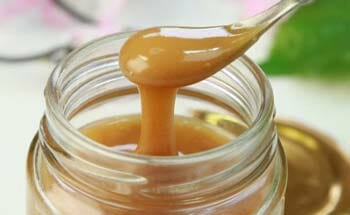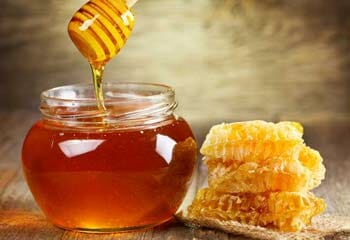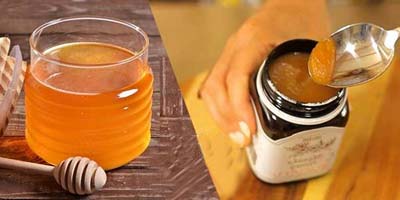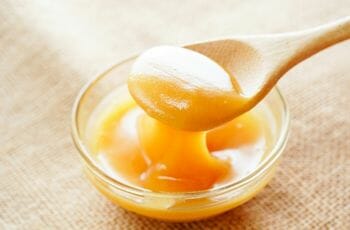SeaRanchLodge.com is a participant in the Amazon Associate program and will earn from qualifying purchases.
There is more than just one type of honey. Each type comes from a different source and in a different form. Most kinds of honey taste similar if you focus on texture and flavor. All honey, in general, is sweet and found in thick liquid forms.
Among all the different types, Manuka honey is the most popular for various reasons but mainly its healing properties. People have obsessed over raw honey as well, also because of all the benefits it has to people’s health.
But how different are these two from each other? There will always be people taking sides when it comes to comparing Manuka honey vs raw honey. In today’s guide, we will discuss why these two types of honey are so popular and then compare the two.
If you are looking for more cooking tips, check out here.
Characteristics, Pros, and Cons
It’s a shame that most people go through their lives only trying regular honey sold in mass. It is the honey you find in every grocery shop. You may see a wide range of brands on the shelves, but they all taste the same, more or less. They are just sold under different labels.
But since globalization increased, trading has also increased. Now, if you go to larger grocery stores or supermarkets, you will see a whole section dedicated only to honey. This time, it’s not just different brands but different types of honey, too.
In these shops, you might find various types of raw honey, rooftop honey, Lavender honey, alfalfa honey, eucalyptus honey, real manuka honey, etc. Among these, a clear favorite has been manuka honey. Let’s compare it to raw or regular honey, which most of us think about when thinking about natural honey.
1. Manuka Honey

Let’s start by talking about Manuka honey. As we know, most honey comes from nectar in plants, especially ones with flowers. Bees extract the nectar by swallowing it and returning it to their hive. They disgorge the nectar in the hive and store it in the honeycomb. With time, inside the honeycomb, the nectar breaks down into sugars. That is how honey is formed.
Manuka honey follows this same routine. The exciting part is that the nectar meant for Manuka honey is extracted from the Manuka plant. That’s why Manuka honey is a bit darker or more pigmented than the general honey color, which is either golden or amber. Manuka honey is also thicker in texture.
The Manuka bush doesn’t grow everywhere. Because it is rare, the Manuka honey is also quite rare and expensive. The known countries where this Manuka plant grows are New Zealand and Australia. In New Zealand, the Manuka bush is known as the New Zealand Tea Tree.
Another exciting thing is that, in Australia, Manuka honey is also made from other plants. They managed to do so by extracting nectar from the Jellybush Tree and the Golden Tea Tree. Manuka honey gained popularity in those countries quickly, but foreigners did not know it was also possible to extract it from those plants.
Later on, research was done on Manuka honey, and reports of the results spread fast. It was proven that Manuka honey was very powerful in fighting bacteria. Of course, medicinal honey with strong antimicrobial properties has been used for decades. Such honey is popular for both internal and external healing.
Thus, manuka honey has been used for everything from sore throat healing to different skin or hair therapy. It is known to have a UMF (Unique Manuka Factor), indicating its activity level as an antibacterial agent. The more the UMF, the more powerful the Manuka honey is against bacteria.
In the properties of Manuka honey, you’ll find lots of concentrated methylglyoxal and leptospira included. Because of these being present in its characteristics, Manuka honey is now purchased worldwide.
Pros
- Injuries: When you get tropical cuts, bug bites, skin rashes, burns, itchy spots, etc., you can smear the Manuka honey in that area.
- Healing: It stops infections on wounds and cleanses it. And it also speeds up the healing process. No need for antibiotics or antibacterial cream anymore.
- Skincare: You can wear the Manuka honey as a face mask to help get rid of acne. It also helps repair damaged and dry skin during winter. And it even helps fade scars, wrinkles, or age lines.
- Colds: Drinking tea, warm water or milk with a spoon of Manuka honey helps with colds.
- Health: If Manuka honey is ingested, it makes your immune system and your digestive system better and healthier.
- Hair Therapy: Some people mix a bit of the Manuka honey with coconut oil and massage it into their hair. This helps them get rid of dandruff. It also adds more nutrients to your hair and makes it softer.
- Body Heat: Manuka honey works great in generating body heat during winter if eaten at least once a day.
- Medicine: Pharmaceuticals in New Zealand even make medicine from Manuka honey. Lozenges for sore throats are one of the popular examples.
- Beauty Care Products: Some companies are making skincare products with Manuka honey as the base or core ingredient. Moisturizers are the most popular products made from Manuka honey.
Cons
- Cost: It is very expensive. And it is only made in two countries: New Zealand and Australia. Its supply isn’t that large, yet its demand is still high—that’s why it’s a bit pricey.
- Unavailability: Manuka honey is very rare. It’s hard to find in most shops. You might have to order it online if the country you’re in doesn’t import it in bulk. And you should try ordering on any international site that will deliver abroad.
- Density: Because Manuka honey is thicker, that makes it harder for you to dip a spoon in and collect some honey.
- It’s also hard to spread Manuka honey on bread or any other similar food. Neither is it possible to drizzle Manuka honey over sweet dishes like pancakes the way you do with other liquid-like honey.
[tcb-script type=”text/javascript”]amzn_assoc_placement = “adunit0”;amzn_assoc_search_bar = “true”;amzn_assoc_tracking_id = “seabanners-20”;amzn_assoc_search_bar_position = “bottom”;amzn_assoc_ad_mode = “search”;amzn_assoc_ad_type = “smart”;amzn_assoc_marketplace = “amazon”;amzn_assoc_region = “US”;amzn_assoc_title = “Buy Manuka Honey now:”;amzn_assoc_default_search_phrase = “Manuka Honey”;amzn_assoc_default_category = “Grocery”;amzn_assoc_linkid = “2ec80eef1be57af675bd67f63ec242d8”;amzn_assoc_default_browse_node = “16310101”;amzn_assoc_rows = “1”;[/tcb-script][tcb-script src=”//z-na.amazon-adsystem.com/widgets/onejs?MarketPlace=US”][/tcb-script]
2. Raw Honey

Now, let’s discuss what raw honey is. Raw honey is honey that has been directly extracted from the honeycomb. This honey has not been filtered or heated to remove any impurities either. Most people don’t consume raw honey daily because they think it’s unhygienic.
Some people still try raw honey out of curiosity because they want the experience. People who study honey and are enthusiastic about it usually try it if they can. Scientists haven’t labeled raw honey as unsafe for your health, so there’s no need to dread trying it if you keep it at a normal level. It is good to try raw honey at least once because of its nutrients or vitamins. It has much more nutritional benefits than the regular honey we eat, which has already been filtered and purified.
But raw honey can’t be bought in local stores or even big grocers. If you want to try raw honey, you will have to go on a road trip to the outskirts of the country and visit a bee keeper’s farm where apiculture is practiced.
You will have to spend much time, effort, and money to experience this. But if you want fresh, authentic, and unfiltered raw honey, it’s best to go directly to the source.
Pros
- Natural: Raw honey is direct and unfermented honey that hasn’t been pasteurized or processed in factories in any way.
- Variety: Raw honey can be made from any plant’s nectar. It can also be made from the Manuka plant. You just need to skip with the various levels of purification of the honey after it has been extracted. But you basically still get the Manuka honey’s qualities along with the raw honey’s qualities.
- Simple Process: People who work in the apiculture field do not have to go through the process of straining, processing, fermenting, etc. for raw honey. It is meant to be consumed directly. So, this means less work for the producers.
- Low Calorie: Raw honey might not seem hygienic to people, but it has no added sugar or concentrated sugar levels in its properties. It won’t add to your weight or add more calories to your diet.
Cons
- Yeast: Raw honey may have yeast present since it hasn’t gone through any heating or fermenting process.
- Unattractive: Like regular honey types, raw honey will not look smooth, and its color won’t be crystal clear or transparent-like either.
- Texture: Since the honey is extracted directly from the honeycomb without a strainer, that means there may be dirt particles, lumpy bits of honey, or even broken bits from the honeycomb falling into the containers where the beekeepers are collecting the raw honey.
- Impure: Raw honey is impure, so it’s possible you’ll find bits of wax, pollen, etc. as well. This is because these impurities haven’t been removed from the honey.
[tcb-script type=”text/javascript”]amzn_assoc_placement = “adunit0”;amzn_assoc_search_bar = “true”;amzn_assoc_tracking_id = “seabanners-20”;amzn_assoc_search_bar_position = “bottom”;amzn_assoc_ad_mode = “search”;amzn_assoc_ad_type = “smart”;amzn_assoc_marketplace = “amazon”;amzn_assoc_region = “US”;amzn_assoc_title = “Buy Raw Honey now:”;amzn_assoc_default_search_phrase = “Organic Raw Honey”;amzn_assoc_default_category = “Grocery”;amzn_assoc_linkid = “2ec80eef1be57af675bd67f63ec242d8”;amzn_assoc_default_browse_node = “16310101”;amzn_assoc_rows = “1”;[/tcb-script][tcb-script src=”//z-na.amazon-adsystem.com/widgets/onejs?MarketPlace=US”][/tcb-script]
Raw Honey vs Manuka Honey

When comparing the benefits of manuka honey and raw honey, it eventually comes down to what the customers like and what seems like a more appealing option to them. Considering everything, it would seem Manuka honey has gained more admiration.
Raw honey has more nutrients than other honey since it is directly extracted from the honeycomb. It hasn’t been processed in any way at all. But Manuka honey has better antibacterial properties than any honey produced worldwide. That’s why the demands and production have increased tremendously over the years.
Even though Manuka honey is expensive, people would still prefer trying remedies through Manuka honey rather than spending hundreds of dollars on beauty care products or medicine from branded pharmaceuticals. It has many skin benefits and can treat almost all skin infections without causing any side effects.
Even if you can afford and find Manuka honey and start using it for its extra healing qualities, this type of honey is not something you can use daily, regardless of whether it is for internal or external use. It can only be consumed twice a week at best.
The Health Benefits of Honey
Honey is a natural sweetener used since ancient times for its health benefits and medicinal properties. As mentioned, organic honey is a source of antioxidants, vitamins, and minerals that can help improve health and well-being. It has several healing properties that are highly sought after.
Conventional honey has been known to have active ingredients with antibacterial, antimicrobial, anti-fungal, and anti-inflammatory properties and is also used to treat various illnesses. Here are some of the health benefits of honey that you should know about:
Aids Digestion
Honey is a natural laxative that helps ease digestion and reduce constipation while it also helps with acid reflux. It also helps to stimulate the growth of beneficial bacteria in the gut, which helps to improve digestive health.
Boosts Immunity
Honey is a natural source of antioxidants, which help to boost the immune system. It also contains flavonoids, plant compounds with antibacterial and anti-viral properties. That can help to protect the body from respiratory infections and illnesses caused by bacterial infections.
Reduces Allergy Symptoms
Honey contains pollen, which can help to reduce allergy symptoms. The pollen in honey acts as an immunotherapy, which helps to desensitize the body to allergens and reduce the severity of symptoms.
Treats Wounds
Honey is a natural antiseptic and can be used for healing wounds and cuts. It is also known to speed up the healing process, as it helps to reduce inflammation and promote tissue regeneration. Doctors can recommend it for treating anything from an infected wound to skin ulcers and skin grafts.
Improves Skin Health
Honey is known to be beneficial for skin health. It helps to moisturize the skin, reduces the appearance of wrinkles, and can even help to reduce acne because of its potent antibacterial activity. It has such high antibacterial levels that you will find it as part of some of the best skin care products.
Promotes Oral Health
Antimicrobial activity can reduce the risk of cavities and other problems caused by oral bacteria. It can also alleviate plaque and bad breath. Its antiseptic properties make it a good candidate for any good mouthwash.
The Benefits of Honey for Beauty and Skincare
Regarding beauty and skincare, manuka and regular honey are powerhouse ingredients that have been around for centuries.
Not only is it a delicious addition to your favorite cup of tea, but honey also has numerous natural benefits when applied topically to the skin and hair. From its anti-aging properties to its healing and nourishing benefits, honey is an excellent choice for beauty and skincare.
An additional health benefit of honey to skincare and beauty is its antioxidant properties. Antioxidants help to fight free radicals in the body, which can cause the skin to heal easily. Honey is also a great source of vitamins and minerals, including vitamin C, which helps to protect the skin from environmental pollutants.
Using honey in your beauty and skincare routine can help reduce the signs of aging, such as wrinkles and age spots. Honey is also known for its natural moisturizing properties, making it an ideal choice for dry skin. When applied directly, honey can help hydrate and nourish the skin while protecting against environmental irritants. It can also help reduce redness and inflammation, making it an excellent choice for sensitive skin.
In addition to its anti-aging and moisturizing benefits, honey is also a great cleanser. When used as a face wash, honey can help remove dirt, oil, and other impurities from the skin, leaving it feeling soft and smooth.
Honey is also known to help reduce acne, as it contains antibacterial properties, which can help to kill off bacteria that cause breakouts.
Finally, honey can also be used as a natural hair conditioner. Applying honey to the hair can help nourish and strengthen the strands, providing a natural shine. It can help reduce frizz and flyaways, making it an excellent choice for curly or wavy hair.
Can You Eat Manuka Honey?

Authentic manuka honey is a type of honey that has been gaining much attention lately. It is a unique honey with a distinctive flavor and texture. The question that often comes up is whether or not you can eat manuka honey.
The answer is yes, you can eat manuka honey. Manuka honey is rich in antioxidants, vitamins, and minerals, among other nutritional components. It is also packed with enzymes and probiotics, which makes it a great addition to your diet.
Regarding taste, manuka honey has a slightly smoky flavor with a hint of sweetness. It is also known for its thick, creamy consistency. It has a slightly bitter aftertaste, which some people may find off-putting. But you can balance out this flavor with other ingredients in recipes.
When it comes to how you can use manuka honey, the possibilities are endless. You can add it to your tea or coffee, use it as a sweetener for oatmeal, smoothies, or yogurt, or spread it on toast. You can also mix it with other ingredients to create a delicious marinade or glaze for meats and vegetables.
However, its sugar content can be a bit too much for people with high blood sugar levels, so it should be consumed in moderation. As recommended above, a couple of times per week should do the trick.
Final Words
We’ve seen detailed descriptions of both regular or commercial honey and manuka honey. After reading everything, we hope you understand the difference between manuka honey and raw honey. The merits and demerits of both types of honey are something to remember, especially if you plan on adding honey to your diet.
We have to say that comparing the Manuka honey and raw honey was tricky since they weren’t on the same level of honey-making. The famous Manuka honey we’ve been discussing is extracted from beehives’ honeycombs, like every other honey, but it goes through fermentation before being put into containers and sold.
On the other hand, raw honey never reaches the same finishing level as Manuka honey. It is extracted and then stored. It doesn’t go through fermentation or any other kind of processing.
Because of this, you can never fully compare the two. Still, customers’ demands for Manuka honey are higher than raw honey for various reasons. Eventually, if it comes down to Manuka honey versus raw honey, we believe Manuka honey will win the battle.
Other Accessories That You May Like from Sea Ranch Lodge:
- Ideal rose water replacement – Find some great replacements.
- Our selected top 7 peach tea bags lists for you.
- Top 10 best honey jar lists for you – An expert buying guide.
- Get beeswax candles for your candle night dinner.
About the Author
Tamara J. SimsEXECUTE CHEF
As a seasoned kitchen and food writer, Tamara has a remarkable ability to weave words together, transporting readers to the heart of the culinary world. Tamara’s articles are written with an engaging blend of insightful commentary, honesty, and real-world examples based on personal experiences. She has the ability to captivate seasoned food enthusiasts and novice cooks alike.
About the Author
Tamara J. SimsEXECUTE CHEF
As a seasoned kitchen and food writer, Tamara has a remarkable ability to weave words together, transporting readers to the heart of the culinary world. Tamara’s articles are written with an engaging blend of insightful commentary, honesty, and real-world examples based on personal experiences. She has the ability to captivate seasoned food enthusiasts and novice cooks alike.


